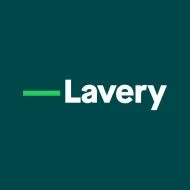THE ROLE, AND ESPECIALLY THE LIABILITY, OF CORPORATE DIRECTORS HAVE EVOLVED CONSIDERABLY OVER THE LAST FEW DECADES. OBVIOUSLY, THE FINANCIAL SCANDALS OF THE 1990s ARE LARGELY RESPONSIBLE FOR THIS CHANGE THAT BEGAN IN THE UNITED STATES WITH THE ENACTMENT OF THE SARBANES-OXLEY ACT OF 2002, PROMPTING CANADIAN AUTHORITIES TO FOLLOW SUIT WITH THE ADOPTION OF MORE STRINGENT SECURITIES REGULATIONS. HOWEVER, MOST OF THESE CHANGES HAVE, UP TO NOW, CONSISTED IN IMPLEMENTING REQUIREMENTS DEALING WITH INTERNAL CONTROL MECHANISMS AND THE DISCLOSURE OF THE GOVERNANCE PRACTICES OF PUBLIC CORPORATIONS. LEGISLATORS AND THE COURTS HAVE NOT SOUGHT TO INCREASE DIRECTORS' DUTIES AND LIABILITIES.
The 2008 economic crisis and the revelations about the role that certain officers and directors of large American financial institutions played in creating the conditions that led to this crisis gave rise to more pressure to increase the duties and liabilities of corporate directors1. For now both legislators and the courts seem to be resisting this pressure. In the United States, the Dodd-Frank Wall Street Reform and Consumer Protection Act, which aims to respond to the economic crisis, does not deal at all with the liabilities or duties of directors. In Quebec, the legislators also ignored these pressures when passing the new Business Corporations Act (the "QBCA") and they maintained the proposals made in December 2007, at the time of the tabling by the then Minister of Finance of Quebec of the consultation document pertaining to the reform of the Companies Act (Quebec), that is to say the adoption of a legislative regime including better protection for corporate directors against potential legal proceedings.
More precisely, legislators in Quebec have extended the right of corporate directors to invoke the due diligence defence in the context of proceedings instituted against them for breaching their duty to act with prudence and diligence and with honesty and loyalty with a view to the best interest of the corporation. This defence may be invoked by directors of federal corporations (governed by the Canada Business Corporations Act), particularly if they relied in good faith on a report of a person whose profession provides credibility to their statements. Now, under the QBCA, a director of a Quebec corporation is presumed to have complied with his duty to act prudently and diligently not only in the above situation but also when he has relied in good faith on the report, information or opinion provided by an officer of the corporation who the director believes to be reliable and competent in the performance of his duties or of a committee of the board of directors of which the director is not a member if the director believes the committee merits confidence 2.
Another protection introduced in the QBCA is the possibility for a director who has contravened certain obligations in the statute to be exonerated, even if it is impossible for him to demonstrate to the court that he acted prudently and diligently, if it appears that he has acted reasonably, honestly and loyally, and ought to be excused fairly 3.
The likely purpose of these provisions is to strengthen the rule according to which a director must not be judged on the merits of the decision he made but rather on the process and method he used to reach his decision. This strengthening aligns perfectly with the trend in the U.S. case law which, since the end of the financial crisis, has strengthened the defence based on the business judgment rule 4 to ensure that directors are not held liable for bad decisions made in good faith and with reasonable diligence. The codification of these rules in the QBCA and the probability that Canadian courts will follow the trend of their U.S. counterparts in this respect suggest that, for the time being, despite the financial crisis, directors of QBCA corporations may for the near future continue to rely on the line drawn by the Supreme Court of Canada in Peoples Department Stores Inc. (Trustee of) v. Wise 5 and in BCE Inc. v. 1976 Debentureholders 6 to ensure that too heavy a burden is not imposed on corporate directors.
However, that does not mean that corporate directors are allowed to do as they please. The duty imposed on them to act with prudence and diligence and with honesty and loyalty with a view to the interest of the corporation remains, despite the existence of possible defences, a heavy burden that should not be taken lightly. Quebec legislators have also incorporated into the QBCA liabilities that the old Companies Act (Quebec) did not include and which, in most cases, did not exist or were more limited in the federal statute.
For example, a director may be held liable for the payment of an unreasonable commission in the context of the issuance of securities by the corporation 7. He also may be held liable if he approves a resolution allowing the payment of an indemnity to a director or officer for the fees and expenses incurred for defending against legal proceedings 8 if a court or other authority having jurisdiction determined that the director or officer in question failed to act in accordance with the conditions required for being entitled to such an indemnity or committed a gross or intentional fault 9. Lastly, a new provision found in the QBCA, but not in the Canada Business Corporations Act or the Companies Act (Quebec), provides that directors may be held liable in the case of the issuance by the corporation of shares for consideration payable in property or in past services the value of which is less than the amount of money that the corporation would have received if the shares had been issued for money 10.
These new liabilities under the QBCA are in addition to the numerous others, including that of the director who knowingly authorizes an untrue entry in the corporation's registers or other records 11, the liability for the payment of employee's wages 12, (although in this case, the QBCA introduces a defence that did not exist in the Companies Act (Quebec), but existed in the federal statute, that is, the defence based on the fact that the director has been reasonably prudent and diligent in the circumstances) and the liability concerning the acquisition, including by purchase or redemption, of shares in contravention of sections 94, 95 or 96 of the QBCA .13
Footnotes
1 See, for example, Tucker, Anne M., Who's the Boss: Unasking Oversight Liability within the Corporate Power Puzzle (February 22, 2010), Delaware Journal of Corporate Law (DJCL), Vol. 35, No. 1, 2010.
2 See section 121 of the QBCA.
3 See section 158 of the QBCA.
4 For example, see the decision of the Delaware Court of Chancery in In re Citigroup Inc. Derivative Litigation (February 2009).
5 [2004] 3 S.C.R. 461.
6 [2008] 3 S.C.R. 560.
7 See section 156, par. 1 of the QBCA.
8 See section 156, par. 5 of the QBCA.
9 See section 160 of the QBCA.
10 See section 155 of the QBCA.
11 See section 493, par. 2 of the QBCA.
12 See section 154 of the QBCA.
13 See section 158 of the QBCA.
The content of this article is intended to provide a general guide to the subject matter. Specialist advice should be sought about your specific circumstances.

